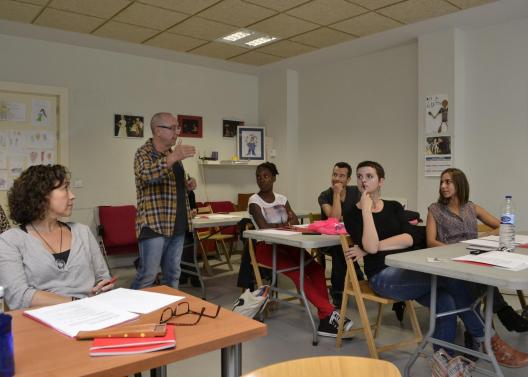The workshop on performing arts and music mobility provides knowledge and resources for the internationalisation of performing arts and live music projects.
The objective of the workshop on performing arts and music mobility is to provide methodological tools and resources for arts organizations, companies and artists --performing arts and live music-- to carry out strategies on mobility, circulation of artistic works and projects, and internationalization. In this way, the development and sustainability of the projects and organizations will be guaranteed.
The workshop on performing arts and music mobility is eminently practical and will apply the methodology "Routes of Mobility and Internationalization" to the artistic and business models of the participants.
The workshop will provide the participants:
- A methodological tool to assess the strengths and weaknesses of mobility and internationalization and answer the question: Am I ready to internationalise?
- Resources and information to recognise the performing arts circuits at an international level and understand the mechanisms of international artistic relations.
- Training to design a mobility and internationalisation strategic plan for the artistic and management project.
The workshop is held in 3 sessions on consecutive days. The sessions will last 4 hours, taking the workshop a total of 12 hours
The recommended number of projects participating in the workshop is 12 and the maximum of 15. The recommended number of participating projects is low so that everyone has time to present their own casesThe workshop could be opened to more than 15 participants. In this case, it will be less participative and the case studies will be mostly presented by Toni Gonzalez
The workshop is aimed at:
- Artists, managers, agents etc. of performing arts who wish to develop a strategy of mobility and internationalisation in their projects or companies
- Creation and exhibition centres interested in opening the scope of their activity and projects to the international partnership
- The technical staff of public administrations interested in developing cultural policies and good practices on mobility and internationalisation of culture and arts in their country, region or city
It is highly recommended that participants attend the workshop with a project or idea for mobility to work on it.
The contents of the sessions are structured as follows:
- Description of the methodology "Routes of Mobility and Internationalisation”. Structure of diagnosis and strategic plan for mobility and internationalization
- The project: capacities and limitations for internationalization. Unique values, artistic narrative
- Environmental identification: partners, clients, competitors, circuits, markets, networks, contacts…..
- Mobility and internationalisation strategic plan. Goals and priorities
- Strategies of the mobility and internationalisation plan: communication, distribution, financing, visibility, new projects
- Action plan
The theoretical content will be based on the methodology of “Routes of Mobility and Internationalisation”. In this link, it could be found further information on the methodology.
In the last years, Toni Gonzalez has held these workshop on performing arts and music mobility in Spain, Brazil, Mexico, Portugal and Cape Verde. The profile of the organizations that have made them possible were:
- Public institutions of culture
- Public institutions for business internationalization
- Authors societies
- Cultural networks and associations
- Festivals, theatres, cultural markets and events ….

